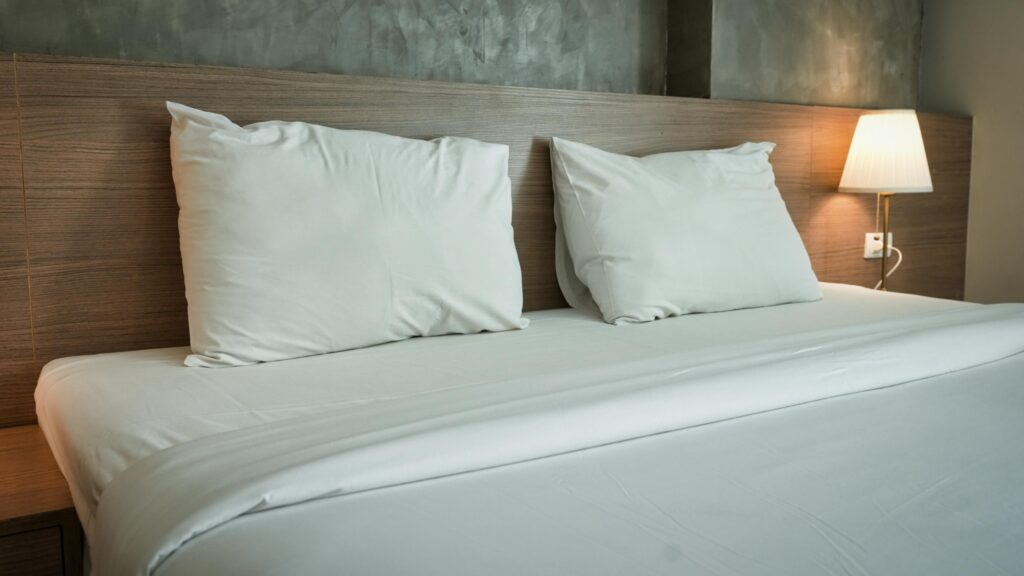Effective Hotel Pricing Strategies to Maximise Revenue & Occupancy
In the highly competitive world of hospitality, hotel pricing strategies play a crucial role in driving revenue and maintaining occupancy. Whether you’re managing a luxury resort, a business hotel, or an urban boutique property, finding the right pricing approach is essential to staying ahead of the competition.
At Chekin, we understand that effective pricing is more than just setting room rates (RevPAR); it’s about creating a dynamic, data-driven strategy that reflects guest expectations, market demand, and operational goals.
Key hotel pricing strategies that can help you boost revenue
1. Understanding Market Demand and Competitor Pricing
One of the foundational elements of a successful pricing strategy is understanding market trends and competitor pricing. However, blindly following competitors can be a mistake. Instead, focus on evaluating market demand, local events, seasonality, and your property’s unique value proposition. Use competitor pricing as a guide, but always adjust your rates based on your specific hotel’s strengths and objectives.
Key tools, like competitive benchmarking and market analytics, can help you assess how your rates compare to those in your area and help you capture the best opportunities to increase revenue.
2. Dynamic Pricing for Maximum Flexibility
Dynamic pricing is a core strategy for any hotel looking to maximise revenue. This flexible pricing model allows you to adjust room rates in real-time based on demand, booking windows, market conditions, and internal occupancy levels. Automation tools make this process more efficient, allowing you to update rates several times a day based on the latest data.
For example, during high-demand periods, hotels can increase rates to capitalise on heightened interest, while lower rates can help drive bookings during off-peak times. By continuously monitoring and adjusting prices, you can ensure that your property remains competitive without leaving money on the table.
3. Tiered Pricing for Room Categories
Hotels typically offer a range of room categories, from standard rooms to suites, and each category should be priced strategically to attract different segments of guests. Offering upgrades like enhanced views, additional amenities, or larger spaces can justify higher rates, while still allowing for flexibility in pricing lower-tier rooms.
To maximise revenue, oversell standard rooms when demand is low and use upgrades to fill higher-category rooms. During peak season, reduce the pricing gap between room categories to encourage the sale of premium rooms.
4. Seasonal and Event-Based Pricing
Seasonality and special events can significantly influence hotel demand, and your pricing should reflect these shifts. For instance, prices should rise during holidays, conferences, or festivals when demand is naturally higher. Conversely, offering special packages or discounts during low-demand periods can help maintain occupancy without heavily discounting your rates.
Consider offering event-based promotions or bundling services (like free breakfast, spa treatments, or late check-outs) to add value during shoulder seasons, ensuring your hotel remains attractive to potential guests.
5. Direct Booking Incentives
While Online Travel Agencies (OTAs) are essential for visibility, they also reduce your overall revenue due to commission fees. (How to reduce OTAS commissions in your hotel) To maximise profitability, encourage direct bookings by offering incentives such as exclusive discounts, free upgrades, or complimentary services that guests can only access through your hotel’s website.
Highlighting a “best rate guarantee” on your site, along with loyalty perks like early check-ins or late check-outs, can increase direct bookings and improve your overall profit margins while reducing dependency on third-party platforms.
6. Automated Pricing for Efficiency
Manually managing hotel pricing is not only time-consuming but prone to error. Today, advanced automated pricing tools can take over the task, offering real-time rate adjustments based on market trends, competitor pricing, and booking patterns. By automating these processes, hotels can ensure that their pricing is always optimised, reducing the risk of missed revenue opportunities.
Automated tools allow for better revenue management by adjusting rates on an ongoing basis and providing insights into future pricing decisions. This helps hotels increase revenue by as much as 20-30% without the need for constant manual intervention.
7. Regular Monitoring and Adjustment
Effective hotel pricing strategies require constant attention. Regularly reviewing key performance indicators (KPIs) like occupancy rates, average daily rate (ADR), and revenue per available room (RevPAR) will help you gauge the success of your pricing strategy.
Monitoring your hotel’s booking pace, guest feedback, and market shifts enables you to fine-tune your approach. Whether demand surges due to an upcoming event or competitors adjust their rates, staying agile will ensure your pricing remains competitive and profitable.
8. Streamline Operations with Chekin’s Automated Solutions
In addition to pricing automation, optimising your hotel’s operational efficiency is key to staying competitive. Chekin provides an all-in-one platform that automates essential processes such as guest online check-in, identity verification, and document management. With Chekin, you can streamline these tasks, ensuring compliance with regulations while freeing up valuable time to focus on strategic activities like pricing.
By integrating Chekin’s solutions, your hotel can offer a seamless, automated guest experience, enhancing customer satisfaction while boosting operational efficiency. This combination of pricing and operational automation ensures that your hotel is not only maximising revenue but also delivering a superior guest experience.
Free trial for 14 days. No credit card required!
Conclusion
Crafting an effective hotel pricing strategy is vital for maintaining competitiveness and maximising profitability in today’s fast-paced hospitality industry. From dynamic pricing to automated tools and tiered pricing models, these strategies will help ensure that your hotel not only attracts more guests but does so while optimising revenue.
At Chekin, we provide comprehensive solutions that simplify guest check-ins, giving you more time to focus on implementing these strategies. Ready to enhance your hotel’s pricing approach and boost revenue? Let’s get started today!






